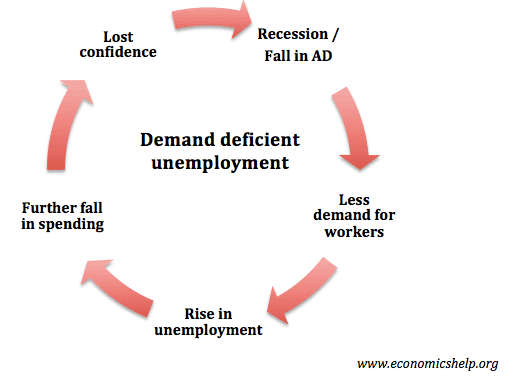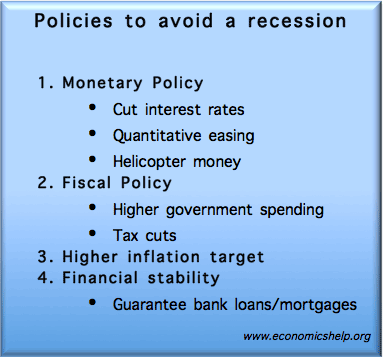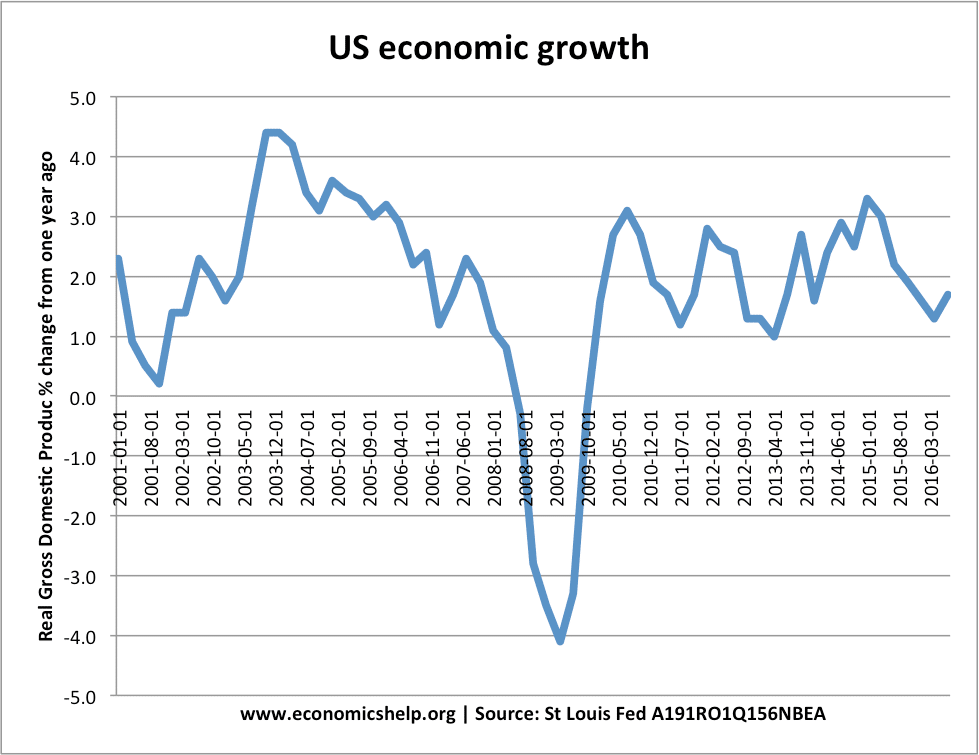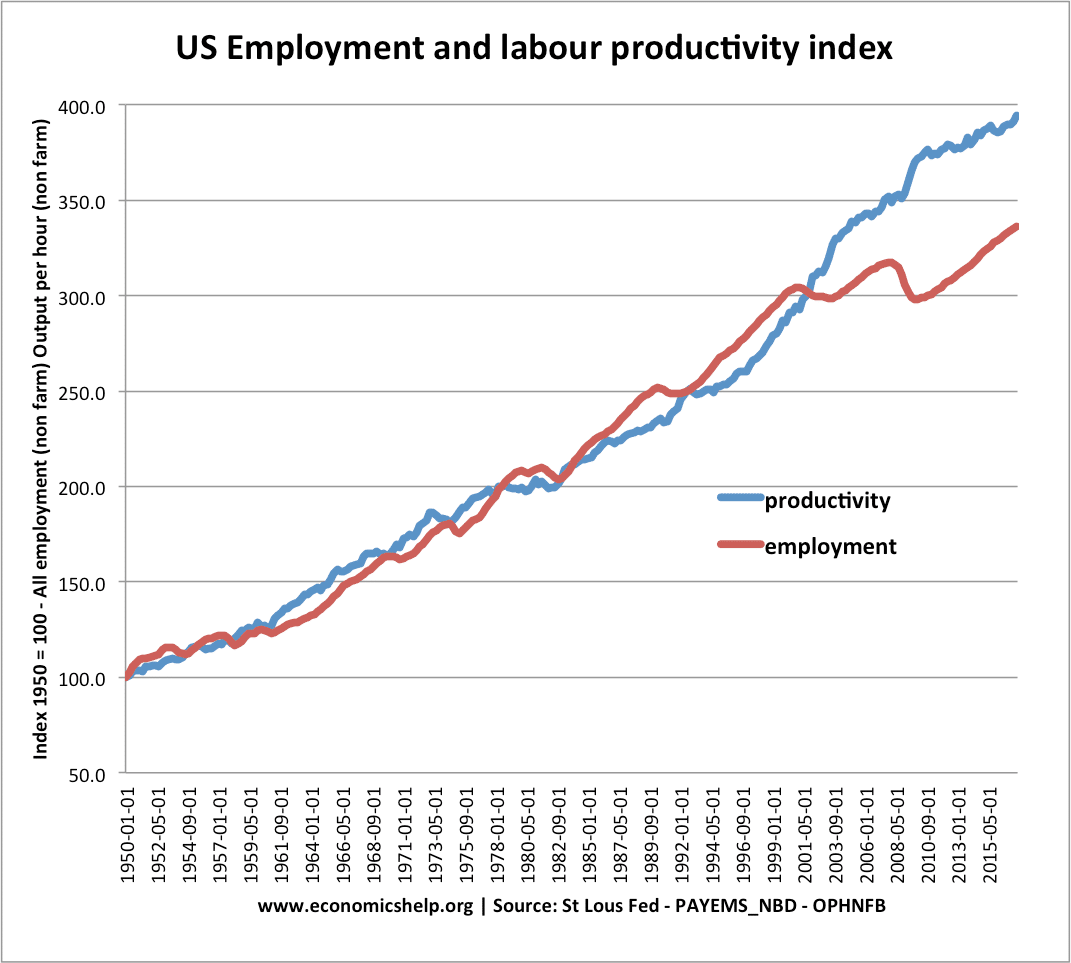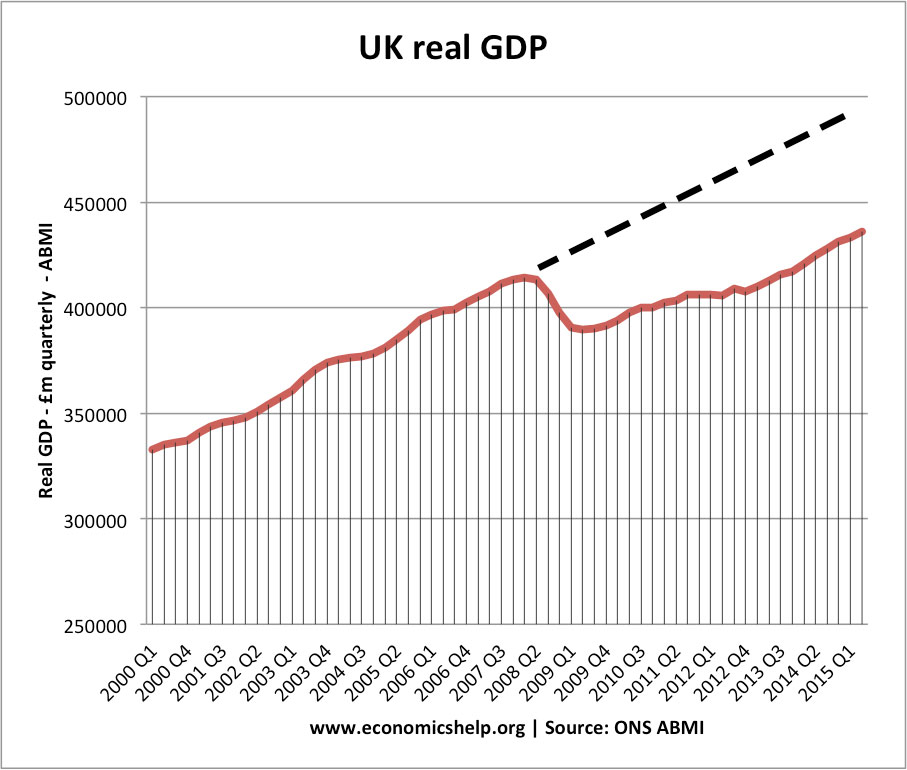Demand Deficient Unemployment
Demand deficient unemployment occurs when there is insufficient demand in the economy to maintain full employment. In a recession (a period of negative economic growth) consumers will be buying fewer goods and services. Selling fewer goods, firms sell less and so reduce production. If firms are producing less, this leads to lower demand for workers …

